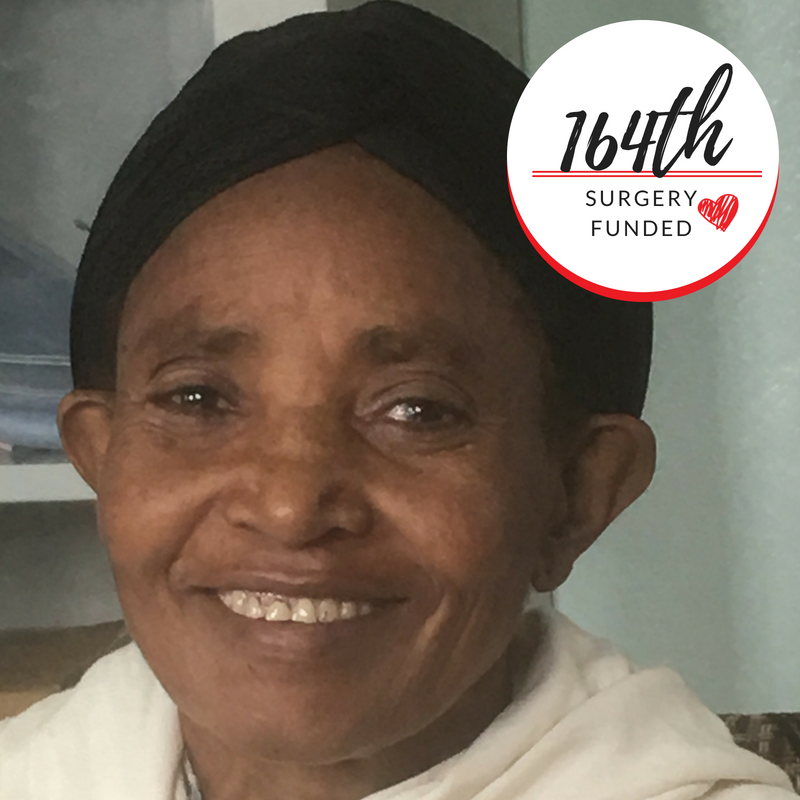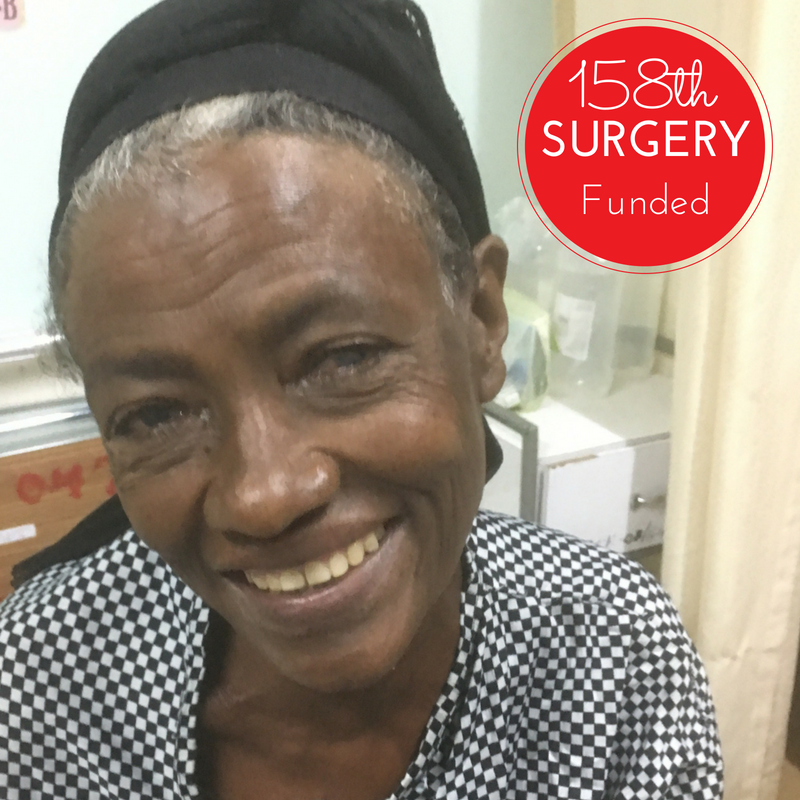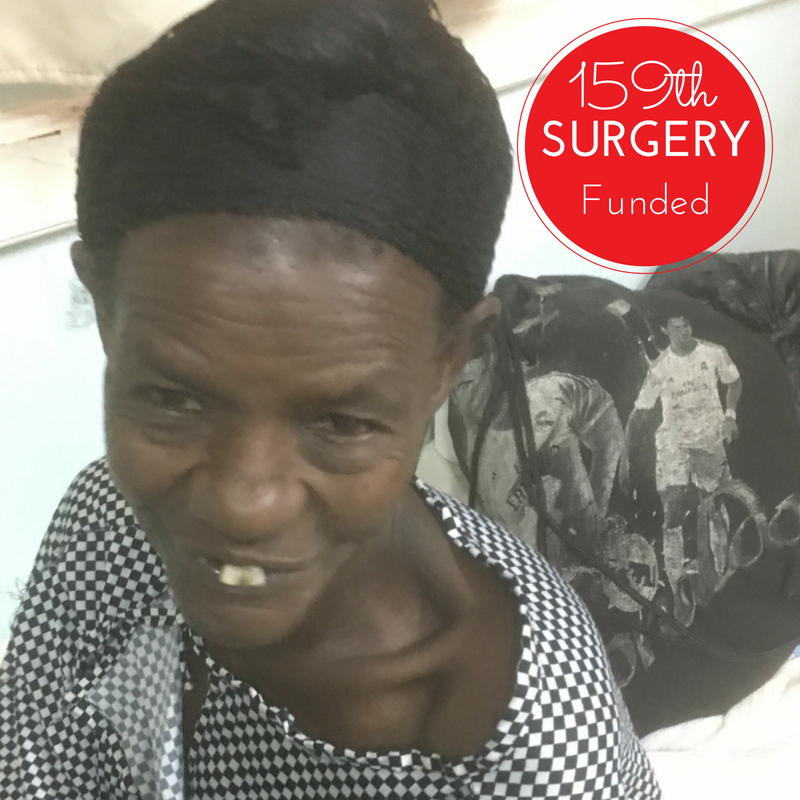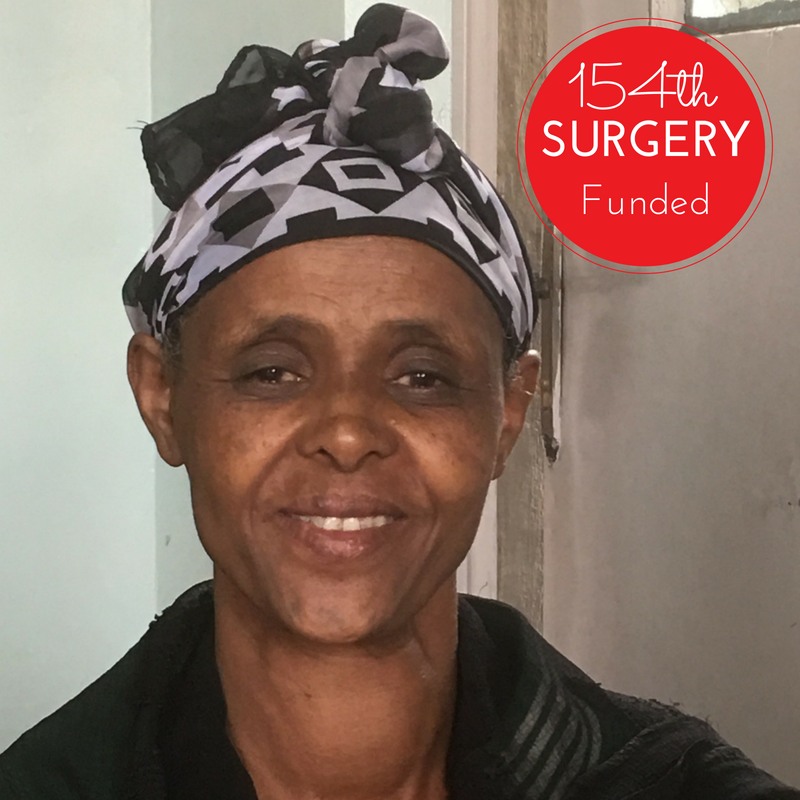"I'm beyond happy to be in this program," said Betelhem Tegegn, a 15-year-old student who just finished Grade 7 and her second year as an athletic scholar. "I have learned a lot, but mostly how to communicate. Before, I was shy and didn't have any friends. Now I am making friends."
The girls build confidence, running skills, and are enjoy team meals after practice. They also benefit from life skills training that tackles tough topics like safe relationships and self-esteem.
"Before I got in this program, I used to think there were some tasks females can't do," said Fidelphia Tamirat, a 13-year-old athletic scholar. "But now I get self-confidence. I feel proud of my gender.'
Prolapse Uterus Surgeries
We had the incredible privilege of speaking with four women recovering from surgery to treat a prolapsed uterus last week. It's a common condition for women who have had a child (and many Ethiopian women have had six, seven or eight pregnancies, though all the children may not have survived).
But in areas where medical care is difficult or impossible to access, the condition can drag on for years. Most of the women we've spoken to in previous years didn't know what was happening to their bodies - they just knew something was very wrong. In an intensely private culture, it's not unusual for a woman to keep those concerns secret, not even telling her friends or family.
There are degrees of prolapse, but in the most severe cases, the uterus actually protrudes from the body. Not only is that incredibly painful and scary, it also causes incontinence and makes walking - and living normally - very difficult. Many women who suffer from the condition in rural areas are isolated, hidden away from their communities because of the shame, stigma and smell.
We were so heartened this year to hear the four women who were treated for prolapse had heard from their neighbours and friends about the solutions offered at rural health clinics and at the Soddo Christian Hospital, where Dr. Mark Karnes uses our funds to treat prolapse patients.
Several of the women had communicated their struggles to one another, and one woman had even told her son. It may not seem like much, but to us this represented a real sign of progress. If women are able to open up to one another about these concerns, it's more likely that they will find out about the health care options available to them, even in very small and rural areas.
"A couple of mothers that I knew already had the surgery," Ayelech said. "If I come across any other women (who have the condition), I will let them know," she added.
Even a day after surgery, recovering in hospital, these four patients were over the moon about the procedure and the difference it would make in their lives.
"I am so happy. I'm better now," Gaule said from her hospital bed. "Now I can do anything I want."
Several women were running their households, taking care of children and even doing intense labour like farming to support their families - all without any treatment for their prolapse.
It's almost unbearable to think about those conditions and the pain these women must bear, both emotional and physical. Surgery to correct a prolapse uterus is only $325. So far, we have funded more than 160 surgeries.
The cost is reasonable for most Canadians, but out of reach for the Ethiopian women we spoke to. These women have spent years with untreated prolapse.
"Because of you, I'm feeling much better now," said Bature, another prolapse patient who was recovering in hospital when we sat down for an interview.
"Now I can be normal. I won't be ashamed."









































